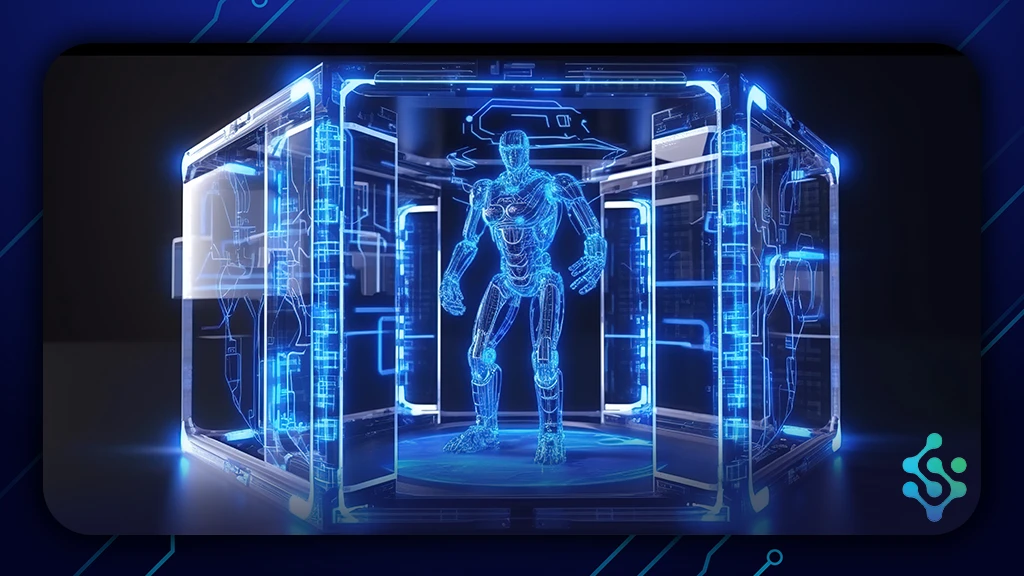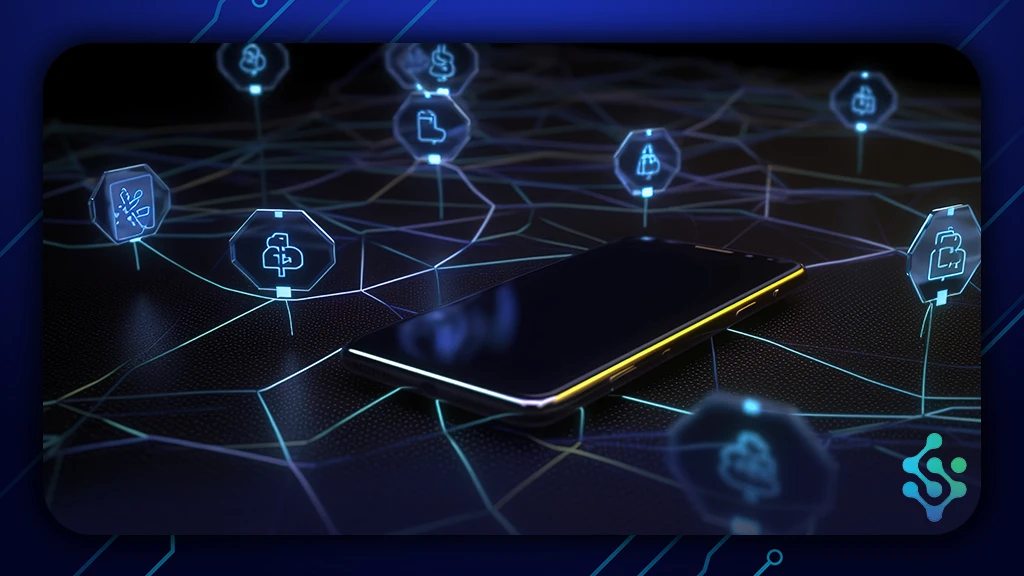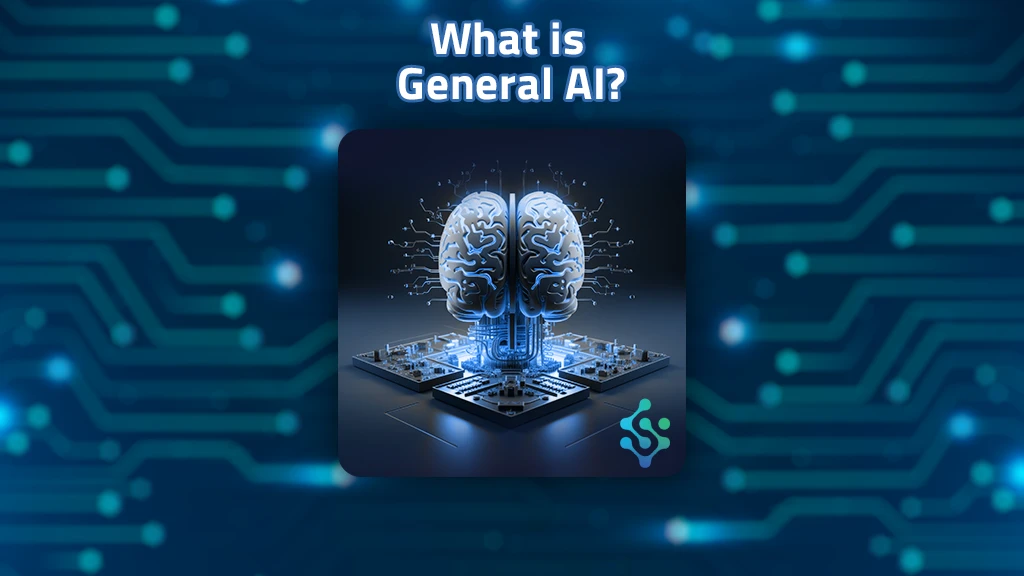In the continuum of Artificial Intelligence (AI), General AI also known as Artificial General Intelligence emerges as a pinnacle, distinguished by its broad comprehension and adaptability. Unlike Narrow AI, General AI transcends limited tasks, exhibiting a human-like understanding and cognitive versatility. While Narrow AI excels in specific domains, General AI embodies a comprehensive intelligence capable of learning, reasoning, and problem-solving across diverse domains. Powered by its expansive capabilities, General AI holds promise for revolutionizing industries, driving innovation, and shaping the future of technology and society.
What is General Artificial Intelligence (Strong AI)
General Artificial Intelligence, often referred to as Strong AI, represents the highest level of artificial intelligence, characterized by its ability to understand, learn, and apply intelligence across a wide range of tasks and domains. Unlike Narrow AI, which is designed for specific tasks within a limited domain, General AI possesses a broader understanding and cognitive adaptability similar to human intelligence. This form of AI aims to replicate the versatility and adaptability of human cognition, enabling it to learn from experience, reason, and solve problems across various contexts. General AI holds the potential to revolutionize industries, drive innovation, and profoundly impact society by facilitating automation, decision-making, and problem-solving on a level comparable to or even surpassing human capabilities.

Examples of Narrow AI (Weak AI)
Examples of General AI, also known as Strong AI, demonstrate the broader understanding and cognitive adaptability of artificial intelligence, enabling it to perform a wide range of tasks across various domains. Here are some prominent examples:
Autonomous Vehicles: Autonomous vehicles represent a prime example of General AI, capable of understanding and navigating complex environments without human intervention. These vehicles leverage advanced AI algorithms to perceive their surroundings, interpret traffic signals, and make real-time decisions to navigate safely.
Natural Language Understanding: General AI systems excel in natural language understanding, enabling them to comprehend and generate human-like responses in conversations. Applications like OpenAI’s Chat GPT demonstrate the ability of General AI to engage in nuanced dialogues, answer complex questions, and generate coherent text based on context.
Robotics: General AI powers robotics systems that can adapt to diverse tasks and environments, performing actions ranging from manufacturing and assembly to household chores and caregiving. These robots possess the cognitive flexibility to learn from experience, adapt their behaviors, and interact with humans seamlessly.
Creative Tasks: General AI showcases creativity and innovation in tasks such as art generation, music composition, and storytelling. AI-powered systems like DeepDream and AIVA demonstrate the ability of General AI to generate novel and artistic content autonomously, pushing the boundaries of human-machine collaboration in creative endeavors.
Problem Solving: General AI excels in problem-solving across various domains, leveraging its cognitive capabilities to analyze complex problems, generate solutions, and adapt strategies based on feedback. AI systems like IBM’s Watson demonstrate the prowess of General AI in domains such as healthcare diagnosis, financial analysis, and scientific research.
Decision Making: General AI systems are capable of making autonomous decisions in dynamic and uncertain environments, weighing multiple factors and optimizing outcomes. Applications in fields like logistics, supply chain management, and resource allocation leverage General AI to make intelligent decisions that enhance efficiency and productivity.
Humanoid Assistants: General AI enables the development of humanoid assistants capable of understanding and emulating human behaviors. These assistants, like SENEX’s upcoming AIA developed, showcase the potential of General AI to interact with humans naturally, understand emotions, and provide assistance in various tasks and contexts.
Advantages and Disadvantages of General AI (Strong AI)

Advantages of General AI (Strong AI)
General AI heralds a new era of cognitive prowess and adaptability, empowering AI systems to tackle diverse tasks and challenges across multiple domains. These systems possess the cognitive flexibility to learn from experience, reason abstractly, and generalize knowledge, akin to human intelligence. With General AI, applications can transcend narrow constraints, harnessing the full spectrum of human-like capabilities to innovate, solve complex problems, and drive progress. Imagine AI-powered robots capable of performing a multitude of tasks, from household chores to complex manufacturing operations, with efficiency and precision surpassing human abilities. Similarly, envision AI systems capable of understanding natural language, generating creative content, and making autonomous decisions in dynamic environments. The potential of General AI to revolutionize industries, enhance productivity, and improve quality of life is vast and transformative.
Disadvantages of General AI (Strong AI)
Yet, amid the promise of General AI lies the specter of ethical and existential concerns, posing challenges and risks that demand careful consideration. As AI systems attain human-like cognitive abilities, questions of autonomy, accountability, and control arise, raising fears of unintended consequences and loss of human agency. The complexity and unpredictability of General AI algorithms may lead to unforeseen errors, biases, or malfunctions, with potentially far-reaching implications for safety, security, and societal well-being. Moreover, the development of General AI raises ethical dilemmas regarding its impact on employment, inequality, and the nature of humanity itself. The prospect of AI systems surpassing human intelligence raises existential questions about the future of society and the role of AI in shaping human destiny. As we venture into the realm of General AI, navigating these challenges with wisdom, foresight, and ethical responsibility is paramount to harnessing its transformative potential for the greater good.
Strong AI vs Weak AI
Strong Artificial Intelligence akin to its specialized counterpart Weak AI, marks a significant stride in the evolution of artificial intelligence. While Weak AI excels in performing specific tasks within predefined domains, Strong AI transcends these constraints, embodying a higher level of cognitive sophistication akin to human intelligence. Unlike Weak AI, which operates within narrow confines, Strong AI possesses the capacity to understand, learn, and apply intelligence across diverse tasks and domains. This broader scope enables Strong AI to tackle complex challenges, adapt to dynamic environments, and innovate across a wide range of applications. By replicating the versatility and adaptability of human cognition, Strong AI represents a transformative leap in AI development, offering unparalleled potential to revolutionize industries, enhance productivity, and augment human capabilities. As the pinnacle of AI achievement, Strong AI aspires to rival and, perhaps, surpass human intelligence in its entirety, heralding a new era of cognitive prowess and innovation.
Narrow AI vs General AI vs Super AI
General AI, Narrow AI, and Super AI delineate the spectrum of artificial intelligence evolution, each with distinct attributes. Narrow AI, also dubbed Weak AI, excels in specific tasks within defined domains, offering precise solutions. In contrast, General AI, or Artificial General Intelligence (AGI), mimics human cognition’s breadth, comprehending, learning, and applying knowledge across diverse domains. AGI surpasses Narrow AI, promising versatility akin to human intelligence. Lastly, Super AI, or Artificial Superintelligence (ASI), represents the pinnacle, surpassing human intellect and possessing self-improvement capabilities, heralding profound societal changes. Transitioning from Narrow AI to General AI to Super AI unveils increasingly sophisticated AI realms, shaping the future.
The Future of Narrow AI
The future of General AI promises a transformative impact on society, revolutionizing how we interact with technology. As Artificial General Intelligence (AGI) continues to advance, it holds the potential to surpass human cognitive abilities, enabling machines to understand, learn, and adapt across diverse tasks and domains. With AGI, we anticipate breakthroughs in fields ranging from healthcare and finance to transportation and education, as intelligent systems collaborate seamlessly with humans, augmenting our capabilities and addressing complex challenges.
Moreover, General AI fosters innovation and creativity, opening avenues for unprecedented discoveries and solutions to longstanding problems. However, as we navigate this future, ethical considerations surrounding AGI’s deployment and its implications for privacy, security, and employment must be carefully addressed to ensure that this powerful technology benefits humanity as a whole.


No comment